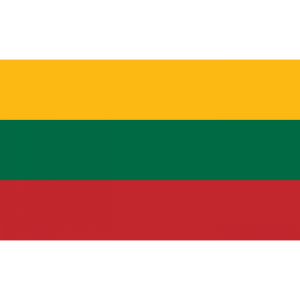Difference between revisions of "Language/Lithuanian/Grammar/Adjectives"
m (Quick edit) |
m (Quick edit) |
||
| Line 2: | Line 2: | ||
{{Lithuanian-Page-Top}} | {{Lithuanian-Page-Top}} | ||
<div class="pg_page_title">Lithuanian Grammar | <div class="pg_page_title">[[Language/Lithuanian|Lithuanian]] → [[Language/Lithuanian/Grammar|Grammar]] → Adjectives</div> | ||
Hi [https://polyglotclub.com/language/lithuanian Lithuanian] learners! 😊 | Hi [https://polyglotclub.com/language/lithuanian Lithuanian] learners! 😊 | ||
| Line 115: | Line 115: | ||
{{Lithuanian-Page-Bottom}} | {{Lithuanian-Page-Bottom}} | ||
<span maj></span> <span gpt></span> <span model=gpt-3.5-turbo></span> | |||
Revision as of 21:03, 18 March 2023
Hi Lithuanian learners! 😊
In this lesson, we will focus on Lithuanian adjectives. Adjectives are words that modify or describe nouns. Learning adjectives is essential when communicating in Lithuanian, as they allow you to add important details and qualities to your sentences.
Declension of Adjectives in Lithuanian
Unlike many other languages, Lithuanian adjectives decline to match the gender, number, and case of the noun they modify. There are 7 cases in Lithuanian: Nominative, Genitive, Dative, Accusative, Instrumental, Locative and Vocative.
Here is an example of how to decline the adjective "rasa" (meaning "dawn") in the Nominative, Genitive, and Accusative cases:
| Lithuanian | Pronunciation | English |
|---|---|---|
| rasa | ra-sa | dawn |
| ra-sos | ra-sos | of the dawn |
| rasa-s | ra-sas | dawn (direct object) |
Note that when an adjective appears after the noun as an attribute, it usually does not decline.
Adjective Comparison in Lithuanian
Lithuanian adjectives have three degrees of comparison: positive, comparative, and superlative.
The positive form is the base form of the adjective, for example:
- Geras (good)
- Didelis (big)
The comparative form is used when comparing two things and ends in -esnis, for example:
- Geresnis (better)
- Didelisnis (bigger)
The superlative form is used when comparing three or more things, and usually ends in -iausias or the suffix -iausiate, for example:
- Geriausias (the best)
- Didžiausiate (the biggest)
Placement of Adjectives in Lithuanian Sentences
In Lithuanian, adjectives usually come after the noun they describe, for example:
- Rašto stalas (writing desk)
- Gera knyga (good book)
However, it is also possible to place adjectives before the noun to emphasize them, for example:
- Storas šuo (fat dog)
- Jaunas žmogus (young person)
Adjective Agreement in Lithuanian
In Lithuanian, adjectives agree with the gender, number, and case of the noun they modify, for example:
- Geras vyras (good man)
- Gera moteris (good woman)
The adjective "geras" agrees with the gender of the noun. In the first example, "vyras" (man) is masculine, and in the second example, "moteris" (woman) is feminine.
Similarly, when modifying a plural noun, the adjective takes a suffix based on the final consonant of the noun. For example:
- Geri vyrai (good men)
- Gerios moterys (good women)
In the first example, "vyrai" (men) ends in a hard consonant, so the adjective takes the suffix -i. In the second example, "moterys" (women) ends in a soft consonant, so the adjective takes the suffix -os.
Examples
Here are some examples of Lithuanian adjectives in context:
- Person 1: Ši knyga yra nuostabi (This book is amazing)
- Person 2: Aš taip pat esu ją perskaitęs, ji yra tikrai geriausia (I've read it too, it's really the best)
- Person 1: Mano amžinai mėgstamas miestas yra Vilnius (My eternal favorite city is Vilnius)
- Person 2: Aš taip pat mėgstu Vilnių, ypač jo senamiestį (I also like Vilnius, especially its old town)
If you want to improve your Lithuanian Grammar, you can also use the Polyglot Club website. Find native speakers and ask them any questions!
➡ If you have any questions, please ask them in the comments section below.
➡ Feel free to edit this wiki page if you think it can be improved. 😎
Related Lessons
- Pronouns
- Conditional Mood
- How to Use Be
- Questions
- Give your Opinion
- Nouns
- Future Tense
- Plurals
- Conjugation
Sources
- Lithuanian grammar - Wikipedia
- Strong vs. weak definites: Evidence from Lithuanian adjectives
- Lithuanian declension - Wikipedia
Template:Lithuanian-Page-Bottom
